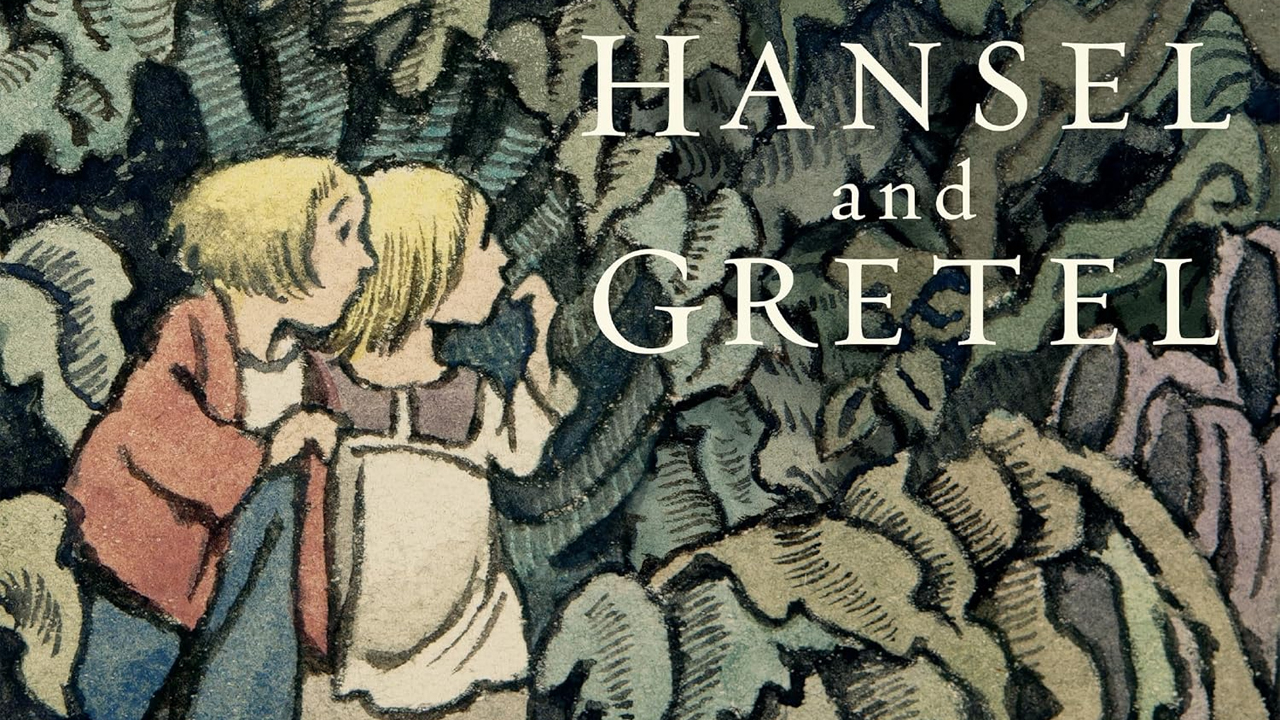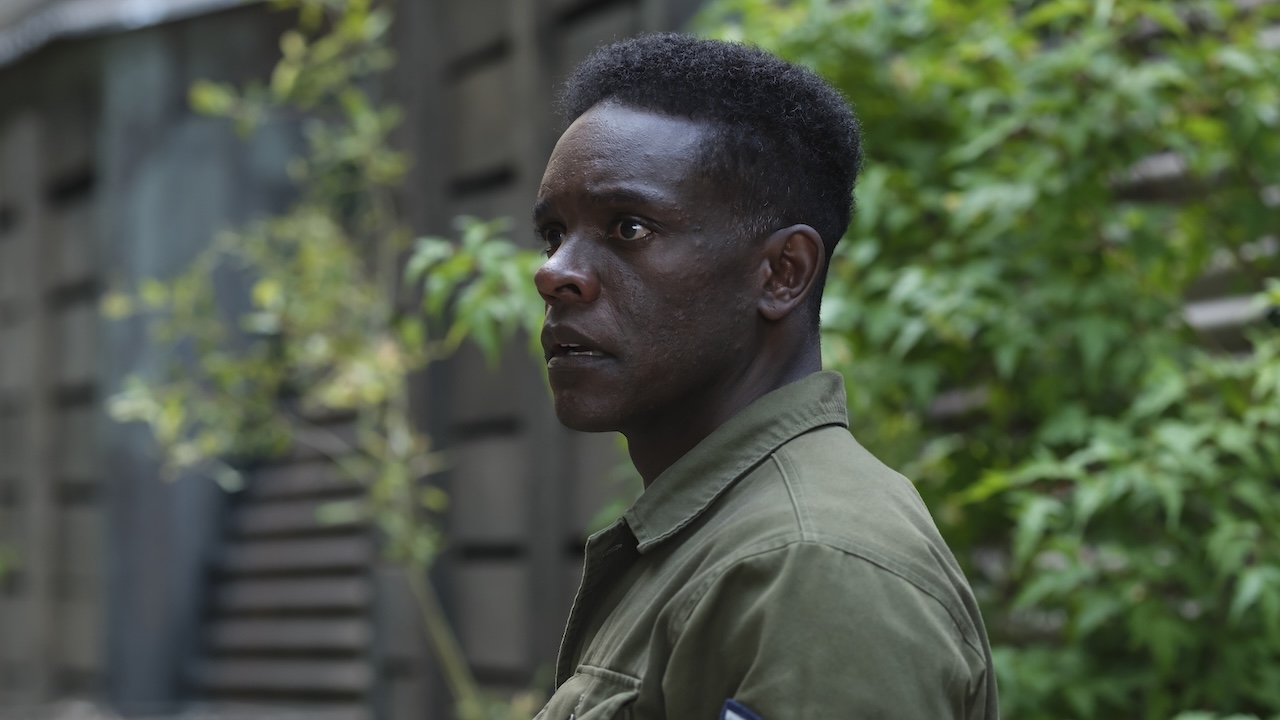
With the start of September, we have officially reached the start of scary season, and so it’s only appropriate that this has been a rather big week for Stephen King fans. On Tuesday, the floodgates opened for movie critics to share their thoughts about director Francis Lawrence’s The Long Walk, and the dystopian horror movie once thought to be unadaptable has earned near universal acclaim so far (you can read by four-and-a-half star review for CinemaBlend). And if that’s not enough for you, the past few days also saw the release of King’s second book of 2025, with Hansel And Gretel, featuring artwork by the late, great Maurice Sendak, arriving in stores everywhere. Those are sizable developments ––and they both help provide the background for this week’s collection of King Beat headlines.
The lead story in this week’s column is inspired by the extreme violence that’s depicted in The Long Walk, with Stephen King making the argument that it has a superior approach to the material than what’s featured in PG-13 blockbusters these days, but that’s not all, as I have a recommended way to check out the aforementioned Hansel & Gretel, and we can all now mark on our calendars when we’ll finally get to see the premiere of HBO Max’s IT: Welcome To Derry. There’s a lot to discuss, so let’s dig in!

Stephen King Insisted That The Long Walk Have A Graphic Approach To Violence, And The Reason Makes A Lot Of Sense
When people complain about violence in film and television, a commonly used word is “gratuitous.” Depictions of characters hurting each other, be it in horror, action, or any other genre, gets dismissed and degraded as purely being for shock value – especially when that cinematic pain features plenty of blood, broken bones, etc. It’s hardly a novel grievance, as more conservative members of the movie-going/TV watching public have been leveling these kinds of protests for decades, but Stephen King has recently made an interesting counterargument: as rough as it can be to watch bloody violence on screen, bloodless violence is arguably worse.
The Long Walk is a film that is likely going to stir up plenty of controversy in this arena as it arrives in theaters, as it not only features a considerable amount of death and pain but features it exclusively happening to young people. The movie doesn’t pull any punches when it comes to this subject matter, and this is partially because of Stephen King’s insistence. It’s extremely hard to watch teenagers get shot and killed as they are eliminated from the titular contest, but the author has made the case that presenting a more sanitized version would be far worse. In a recent interview with England’s The Times, King said,
If you look at these superhero movies, you’ll see … some supervillain who’s destroying whole city blocks but you never see any blood. And man, that’s wrong. It’s almost, like, pornographic … I said, if you’re not going to show it, don’t bother. And so they made a pretty brutal movie.
This is a point of view I happen to very much agree with. Horrible as it may be, violence is a part of our world (which all art is designed to reflect), and it also happens to be great fuel for storytelling because it instantly generates conflict – but depicting it without properly showcasing its consequences has obvious dangers. It’s unpleasant to witness appalling gore, and that’s vital; otherwise we just become numb to it all.
As noted by King, The Long Walk presents a perfect example of this. If the film tried to go for a PG-13 rating and featured young characters only being shot off-screen, it would not only undercut the movie’s emotional effectiveness, but it would undermine the core theme of the story, which is an examination of society’s horrific capacity for exploiting younger generations. It makes for a dreadful but powerful cinematic experience, and audiences everywhere will be able to witness it starting on September 12.

You Can Now Let ‘Uncle Stevie’ Read You A Bedtime Story With The Release Of Hansel & Gretel
Stephen King has a lot of nicknames among his Constant Readers, but one of my favorites has long been “Uncle Stevie.” It’s a reflection of how his fans see his presence in pop culture: he is the ultra-cool relative who is much more lenient than your parents, taking you to the R-rated movie that you were told you couldn’t see or letting you drive his car in a parking lot long before you get your license. He’s so engrained in our world that our relationship with him practically feels familial – and you can expand on that feeling by having him read you a bedtime story.
As noted earlier, the latest addition to the Stephen King literary canon was published this past Tuesday (just a few months after the arrival of the new Holly Gibney novel Never Flinch), and while you have the option to simply pick up a copy of Hansel & Gretel and enjoy the author’s take on a classic fairy tale, there is a better option that you may want to consider. In addition to the book being available in print, featuring outstanding and creepy artwork that Maurice Sendak initially designed for a version of the Engelbert Humperdinck opera, there is also an audiobook version that features narration from King himself.
So allow me to make this recommendation to you: today or in the next couple of days, purchase a copy of the new hardcover copy of the book and download the audiobook. Before you get set to go to bed, hit play on the latter and start flipping through the pages of the former, allowing Uncle Stevie to read you a classic bedtime story about two children who get abandoned in the woods by their parents and find themselves confronting an evil witch in a candy house who has designs to cook the kids in her oven. It’s a fun way to feel like a kid again, even if it’s only for about 30 minutes.

IT: Welcome To Derry Gets A Premiere Date Just In Time For Halloween
Fans have been waiting a considerable amount of time for the arrival of IT: Welcome To Derry. It was nearly three-and-a-half years ago when it was first announced that the IT prequel was in the works, production began in the summer of 2023, and release plans have only slowly gotten more exact since then. Halloween 2025 was announced as the target for the series in November 2023, but the debut teaser that arrived online in August 2024 featured nothing more than the vague promise of “Coming 2025.” In more recent months, guarantees of an October arrival were shared… but without any more specificity.
Patience has been tested, but in recent days, we finally got a true date for the new show: IT: Welcome To Derry is going to make its world premiere for HBO Max subscribers on October 26 a.k.a. the Sunday before Halloween. In addition to this meaning that fans will be able to check out the pilot during the scariest holiday of the year, this also means that the final two Stephen King adaptations of 2025 are going to have overlapping release schedules, as the horror TV series is presumably going to be premiering its fourth episode on the same weekend that Edgar Wright’s remake of The Running Man starring Glen Powell will be debuting in theaters (November 14).
The upcoming Stephen King series is set 27 years before the 1989-set events of IT: Chapter One and depicts the events that occurred when the evil Pennywise The Dancing Clown (Bill Skarsgård) woke from its hibernation in the middle of the 20th century. Trailers have shown that there will be original characters and stories introduced, but the plot of the show will feature the tale of the Black Spot, a club created by locally stationed Black soldiers that is ultimately attacked and destroyed by the local chapter of the Klan – and yes, it will be very interesting to see how the adaptation of that tale from Stephen King’s IT ends up comparing to the masterpiece titled Sinners that writer/director Ryan Coogler released in theaters earlier this year. The outstanding ensemble cast of the HBO original includes Jovan Adepo, Taylor Paige, Chris Chalk, James Remar, Stephen Rider, Madeleine Stowe, and Rudy Mancuso.
It should go without saying that IT: Welcome To Derry is one of my most anticipated titles set to arrive between now and the rest of the year, and you can be sure that I’ll be writing about it plenty in future installments of this column.
Speaking of which, that brings us to the end of this week’s edition of The King Beat, but as ever, I’ll be back here on CinemaBlend next Thursday with a brand new collection of headlines tracking the biggest developments in the world of Stephen King. In the meantime, you can explore the vast history of King’s stories in film and television via my series Adapting Stephen King.







